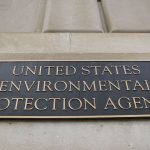By Bonner R. Cohen
An obscure, Maryland-based environmental group that has pocketed tens of millions of dollars in taxpayer money over the past 14 years is at the center of a congressional investigation after posting a letter on its website urging President Barack Obama to use racketeering statutes against those questioning predictions of an imminent manmade global warming catastrophe.
On September 1, just two months before the opening of the U.N.-sponsored climate change conference in Paris on November 30, the Rockville, Maryland-based Institute for Global Environment and Society (IGES) posted a letter, signed by 20 academics and researchers, on its website, urging Obama, Attorney General Loretta Lynch, and John Holdren, director of the White House Office of Science and Technology Policy, to investigate corporations and other climate skeptics under the Racketeer Influenced and Corrupt Organization Act (RICO), a statute designed to pursue organized crime.
The idea of using RICO against the fossil fuel industry and other opponents of the theory man is primarily responsible for climate change was first broached by Sen. Sheldon Whitehouse (D-RI) in an op-ed published in The Washington Post on May 29, 2015.
IGES Under Investigation
Publication of the IGES letter led to a congressional investigation when it was revealed IGES received $63 million in federal funding, accounting for more than 98 percent of its income, between 2001 and 2014.
IGES “appears to be almost fully funded by taxpayers while simultaneously participating in partisan activity by requesting a RICO investigation of companies and organizations disagreeing with the Obama administration on climate change,” said Rep. Lamar Smith (R-TX), chairman of the House Committee on Science, Space, and Technology.
Smith’s committee has requested IGES turn over “all e-mail, electronic documents, and data created since January 1, 2009.”
‘Knowingly Deceived People’
Jagadish Shukla, president and founder of IGES and a professor at George Mason University, organized the 20 signatories of the letter to Obama calling for a RICO investigation of “corporations and other organizations that have knowingly deceived the American people about the risk of climate change.”
The scientists signing the letter have been dubbed the RICO 20. The letter has since been removed from the IGES website.
David Schnare, general counsel at the Energy & Environment Legal Institute says a major problem with the RICO 20’s request is for either civil or criminal legal action to be taken under RICO, there has to be an underlying crime, and in this case there are none.
“Most RICO investigations include fraud involving the collusion of multiple parties to mislead or lie in order to make a profit,” said Schnare. “In this instance there is no predicate crime.
“Being a skeptic, and working with other scientists whose research leads them to be skeptical, isn’t a crime,” Schnare said. “Skepticism is supposed to be encouraged in science. Being wrong in the pursuit of knowledge is not criminal.”
Investigating Shukla
Shukla has come under scrutiny since organizing the letter.
IGES is connected with George Mason’s School of Science in Fairfax, Virginia, and the climate science blog Climate Audit disclosed Shukla’s wife and daughter are on IGES’s payroll. Climate Audit revealed Shukla and his wife pocketed more than $800,000 in both 2013 and 2014 from their combined George Mason and IGES incomes.
George Mason University has yet to respond to inquiries about whether Shukla’s possible double-dipping violates the institution’s ethics rules.
Prosecuting Disagreement
Chris Horner, an attorney with the Competitive Enterprise Institute, said of the call for a RICO investigation of climate skeptics, “We credit the faculty’s understatement in characterizing their pursuit as an ‘aggressive and imaginative use of the limited tools available’ to use the state to counter political opposition.
“However, given these taxpayer servants seek investigation of those who disagree with them in their capacities as taxpayer-funded academics, they should expect to hear more in the near future about the use of public resources afforded them to advance this unique twist on the vigorous exchange of ideas that used to be the purpose of higher education,” said Horner.
This article was reprinted with permission from the January 2016 edition of Environment & Climate News (www.environmentandclimate-news.org), a national monthly publication devoted to sound science and free-market environmentalism.
Bonner R. Cohen, Ph.D. (bcohen@nationalcenter.org) is a senior fellow at the National Center for Public Policy Research in Washington, DC., a position he has held since 2002. Prior to joining The National Center, he was a senior fellow at the Lexington Institute and the Washington editor of the Earth Times. He currently serves as senior policy analyst with the Committee for a Constructive Tomorrow.
Related News
Subscribe Today
Every other month, Soil & Mulch Producer
News brings you important stories about:
• New Technology
• Products
• Industry News
• Research Studies
Soil & Mulch Producer News features articles and services relevant to your daily operations.











